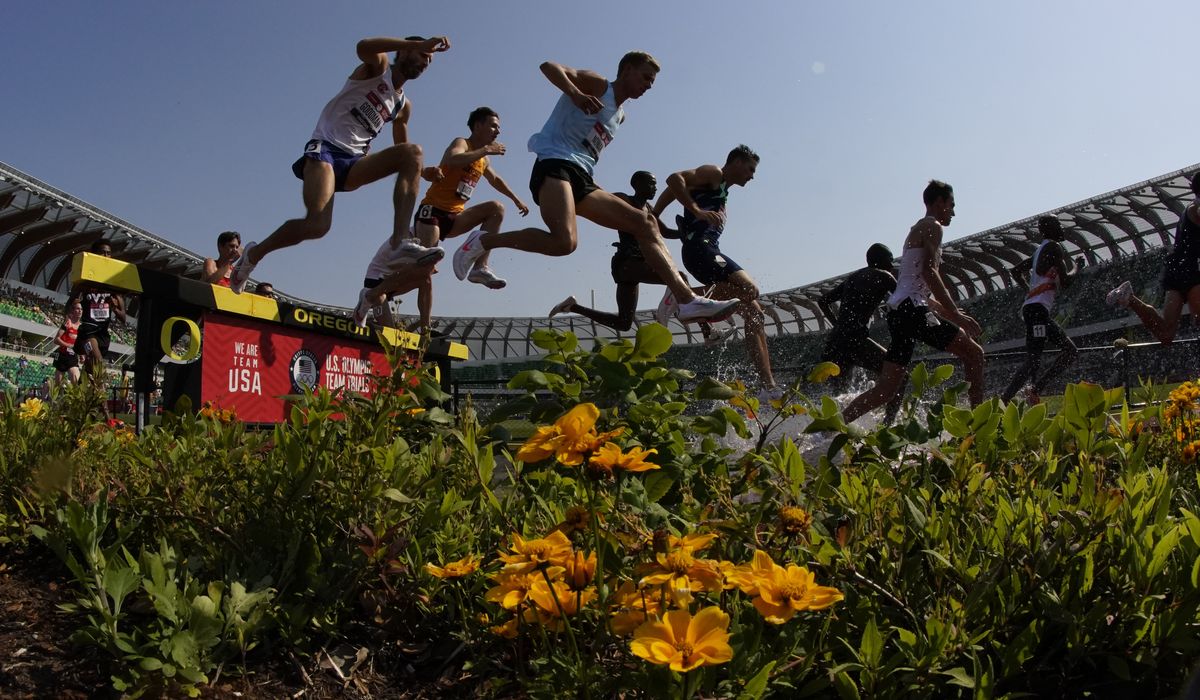
A transgender hurdler has been ruled out of the U.S. Olympic trials after failing to meet the testosterone standard set by World Athletics, the international governing body for track and field.
CeCe Telfer had her name removed from the list of competitors for Friday’s heat after being unable to qualify under the WA eligibility rules, which require transgender athletes competing in women’s middle-distance races to keep their testosterone below 5 nanomoles per liter [nmol/L] for at least 12 months.
Telfer, 26, became the first transgender athlete to win an NCAA women’s title when she placed first in the 400-meter hurdles at the Division II Outdoor Track and Field Championships in 2019 after competing in the men’s division in 2016-17, before her gender transition.
In a statement, USA Track and Field said that while she met the performance qualification standard for the U.S. trials, “she has not met the conditions established in the World Athletics ‘Eligibility Regulations for Transgender Athletes’ and is therefore ineligible to compete.”
“Following notification from World Athletics on June 17 that the conditions had not yet been met, USATF provided CeCe with the eligibility requirements and, along with World Athletics, the opportunity to demonstrate her eligibility so that she could compete at the U.S. Olympic Team Trials – Track & Field,” said the USATF statement provided to The Washington Times.
“According to subsequent notification to Cece from World Athletics on June 22, she has not been able to demonstrate her eligibility,” the statement said.
David McFarland, Telfer’s manager, said in a Wednesday statement that Telfer would respect the decision.
“CeCe has turned her focus towards the future and is continuing to train,” McFarland told the Associated Press. “She will compete on the national — and world — stage again soon.”
USATF added that it “strongly supports inclusivity and providing a clear path to participation in the sport for all, while also maintaining competitive fairness.”
“If CeCe meets the conditions for transgender athlete participation in the future, we wholeheartedly back her participation in international events as a member of Team USATF,” said the statement.
Under its 2018 rule change, World Athletics requires transgender athletes to maintain serum testosterone of less than 5 nmol/L continuously for 12 months and for as long as they compete in the female category for races between 400 meters and one mile.
That standard is stricter than the International Olympic Committee guidelines, which advise transgender athletes to keep their testosterone below 10 nmol/L.
Among the governing bodies that adhere to the higher IOC level is the International Weightlifting Federation, which cleared New Zealand transgender weightlifter Laurel Hubbard to compete in the women’s division.
Earlier this week, Hubbard, 43, became the first transgender athlete to make an Olympic team. Her testosterone serum level is not publicly available.
The World Athletics standard also threatens to prevent South African runner Caster Semenya from defending her title in the 800-meter competition after taking gold in the 2012 and 2016 Olympics.
Semenya, who was born with a Disorder of Sex Development that gives her elevated testosterone, has filed an appeal with the European Court of Human Rights after losing her challenge to the regulations at the Swiss Supreme Court.
Time is running out for Semenya’s appeal. The Tokyo Olympic Games, which were postponed for a year by the pandemic, run from July 23-Aug. 8.







